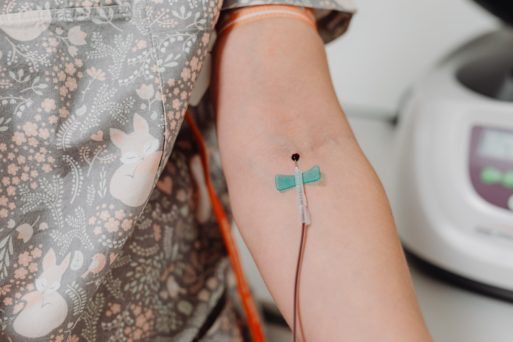
Patients who need blood transfusions are less likely to enter hospice, and doctors are less likely to refer them.
More patients would likely choose hospice if they had guaranteed access to blood transfusions, recent research has found. Those approaching the end of life who rely on transfusions, particularly patients with blood cancers, often decline hospice for fear of losing access.
Researchers from the Dana-Farber Cancer Institute, the Yale Cancer Center and Duke University School of Medicine surveyed 102 patients with blood cancers from two large cancer centers between October 2020 and July 2021. They found that patients considered access to blood transfusions their most significant need, far beyond hospice services such as telemedicine, transportation and visiting nurses. Patients with blood cancers typically only enroll in hospice in the last three days of life, the paper reported.

Blood transfusions can relieve end-of-life symptoms such as dizziness and fatigue.
Lack of Blood Transfusions in Hospice a Long-standing Issue
Advocates have been working to expand access to blood transfusions in hospice services covered by Medicare. The Improving Access to Transfusion Care for Hospice Patients Act of 2021, introduced in the U.S. Senate in August, aims to create a Medicare program providing a separate payment for blood transfusions. Traditionally, Medicare pays a fixed cost for hospice patients, regardless of the care they receive. And because blood transfusions are considered a cancer treatment rather than a palliative measure, they aren’t covered.
Previous research, including a 2017 study in the journal Cancer, has shown that doctors are also less likely to refer patients with blood cancers for hospice services due to an inability to receive transfusions. “Patients with blood cancers are more likely to die in the hospital,” Oreofe Odejide, a hematologic oncologist at DanaFarber Cancer Institute in Boston and a lead author of the 2017 study, told Cancer Today. “If someone is transfusion-dependent, they may struggle with the decision whether to enroll in hospice if they cannot access something they consider important for their quality of life.” Odejide, who also co-authored an opinion piece in Lancet Hematology advocating for better access to blood transfusions for hospice patients, explained that while transfusions will not prolong life or cure disease, they can address troubling symptoms such as dizziness and fatigue.
Organizations such as the American Society of Hematology agree. “The benefits of blood transfusions for patients undergoing palliative care are significant and can improve several symptoms, including breathlessness, bothersome bleeding and profound fatigue,” it said in a statement.

 Access to Blood Transfusions Could Increase Hospice Usage
Access to Blood Transfusions Could Increase Hospice Usage


 “Songbird” by Fleetwood Mac
“Songbird” by Fleetwood Mac

 How to Comfort A Dying Loved One
How to Comfort A Dying Loved One














